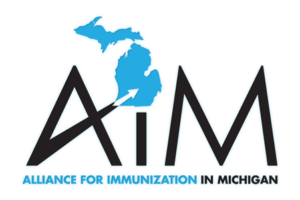Introducing Solid Foods
When can I start giving my baby solid foods? What type of food should I start giving? How much solid food should I offer every day? These are common questions for new parents and something that we are happy to discuss with you at your child’s visits. All children develop at different rates but in general most babies are ready for complementary foods sometime between 4-6 months of age.
Signs that your baby may be ready to try complementary foods include:
- Good head and neck control- can your baby sit up straight in his/her high chair without support?
- Loss of tongue thrust reflex- when you offer your baby a spoonful of food, does he/she push it right back out with their tongue and let it dribble down his/her chin? Or is he/she able to move the food to the back of their mouth and swallow it?
- Interest in solid foods- does your baby watch you eagerly while you eat, grab for your food if it is within reach, or open their mouth if it comes their way?
What first foods should I offer?
When you first begin offering solid foods to your baby, the main purpose is to provide an extra dietary source of iron. During the last couple months of pregnancy, iron is transferred to the baby from mom through the placenta. Around 4-6 months of age, baby’s iron stores that they received from mom begin to run low and they need additional iron from their diet. For this reason, when you first offer solid foods, it is recommended to start with an iron rich food such as iron-fortified baby cereal (oatmeal, rice, barley) or a meat-containing puree. If offering rice cereal, it should be offered along with a variety of other cereals. The FDA recommends against offering infants only rice cereal because there is a risk of arsenic exposure. Dry baby cereals can be mixed with breastmilk, formula, or water. Single ingredient foods are preferred for first foods.
How should I go about offering it?
The first time you offer solid foods, start with a small amount (about half a spoonful). It may take several attempts before your baby figures out how to move the food from the spoon into their mouth and swallow. Follow your baby’s lead and if they close their mouth, turn their head away, or begin to cry, those may be signs that they are not interested. Never force the food into your baby’s mouth as this has the potential to create a negative association with eating and set the stage for long-term problems with feeding. If your baby refuses solids the first time you try, just continue to breastfeed or bottlefeed and try solids again in a few days.
How do I introduce more variety? What about highly allergenic foods?
Once your baby is taking their first food well, you may add in pureed vegetables and fruits. In general, it is a good idea to wait 3 to 5 days in between each new food you introduce to make sure your child can tolerate each food. The foods that tend to cause more food allergies are eggs, fish, peanut butter, and tree nut butters. These can be introduced after your baby tolerates their first foods well. Waiting to introduce these highly allergenic foods has shown no benefit in reducing the chance of your child developing a food allergy. As your baby tolerates individual food purees well, you can introduce combinations of the foods they have tolerated (fruit and cereal, meat and vegetable). If there is a family history of food allergy discuss when to introduce allergenic foods with your health care provider.
Are there any foods I should not give my baby?
There are certain foods you should avoid giving to your baby. Specifically, you should not give your baby whole cow’s milk before 1 year of age because their gastrointestinal tract and kidneys are not mature enough yet. It is also recommended to avoid honey before 1 year of age due to the association between the consumption of raw honey and the development of infant botulism (a severe paralysis syndrome). Foods that can be choking hazards should also be avoided (i.e. hard, round foods such as nuts, grapes, round carrots).
How much should I offer?
When you first start solids, the main purpose is to teach your baby how to eat off a spoon and to introduce new flavors and textures. You may offer solids 1-3 times a day. Initially it might just be a couple of spoonfuls in one sitting. As your baby gets closer to 7-9 months of age they might eat an entire jar of baby food in one sitting. The majority of their nutrition should still come from breast milk or formula until they are getting closer to 12 months of age. To encourage this, always offer breast milk or formula first and solids second. Around 12 months of age most babies are getting about half of their daily calories from solids.
When can I offer finger foods?
Once they are eating thin purees well, you can advance to thicker purees and soft, easily mashed foods. Around 8-10 months of age most babies have developed the ability to pick up finger foods and feed themselves. Self-feeding should be encouraged although they may need a combination of self-feeding and spoon-feeding to ensure they get enough calories until they are proficient at self-feeding.
Other excellent resources for feeding solid foods to your child include the following:
For questions about arsenic in rice cereal, please visit the FDA’s website which has answers to most common questions about this topic:
https://www.fda.gov/ForConsumers/ConsumerUpdates/ucm493677.htm





















